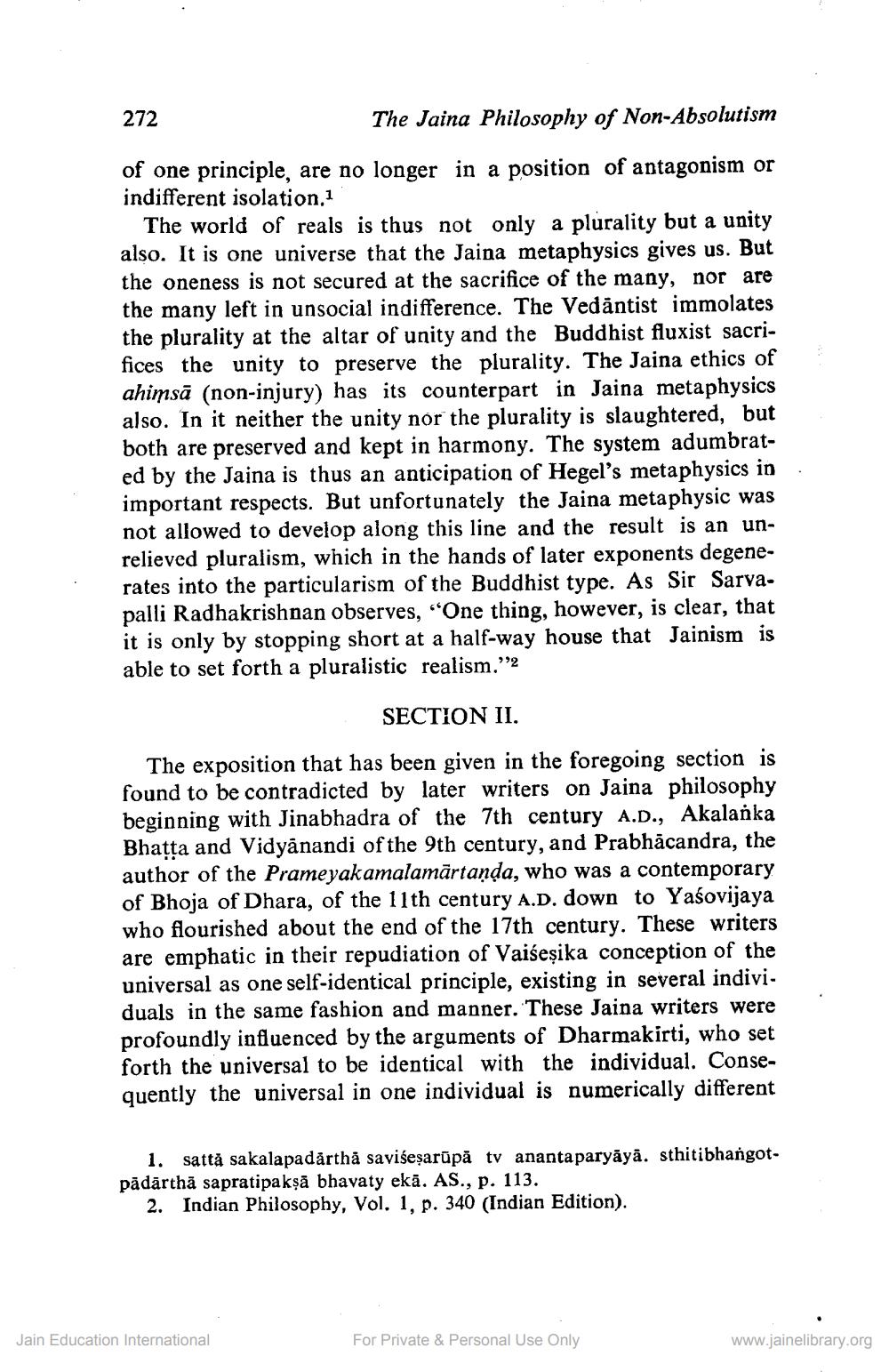________________
272
The Jaina Philosophy of Non-Absolutism
of one principle, are no longer in a position of antagonism or indifferent isolation.1
The world of reals is thus not only a plurality but a unity also. It is one universe that the Jaina metaphysics gives us. But the oneness is not secured at the sacrifice of the many, nor are the many left in unsocial indifference. The Vedāntist immolates the plurality at the altar of unity and the Buddhist fluxist sacrifices the unity to preserve the plurality. The Jaina ethics of ahimsā (non-injury) has its counterpart in Jaina metaphysics also. In it neither the unity nor the plurality is slaughtered, but both are preserved and kept in harmony. The system adumbrated by the Jaina is thus an anticipation of Hegel's metaphysics in important respects. But unfortunately the Jaina metaphysic was not allowed to develop along this line and the result is an unrelieved pluralism, which in the hands of later exponents degenerates into the particularism of the Buddhist type. As Sir Sarvapalli Radhakrishnan observes, "One thing, however, is clear, that it is only by stopping short at a half-way house that Jainism is able to set forth a pluralistic realism.”'2
.
SECTION II The exposition that has been given in the foregoing section is found to be contradicted by later writers on Jaina philosophy beginning with Jinabhadra of the 7th century A.D., Akalanka Bhatta and Vidyānandi of the 9th century, and Prabhācandra, the author of the Prameyakamalamārtanda, who was a contemporary of Bhoja of Dhara, of the 11th century A.D. down to Yaśovijaya who flourished about the end of the 17th century. These writers are emphatic in their repudiation of Vaiseșika conception of the universal as one self-identical principle, existing in several individuals in the same fashion and manner. These Jaina writers were profoundly influenced by the arguments of Dharmakirti, who set forth the universal to be identical with the individual. Consequently the universal in one individual is numerically different
1. satt, sakalapadårthå saviśeşarūpå tv ananta paryāyā. sthitibhangotpādārthā sapratipakşā bhavaty ekā. AS., p. 113.
2. Indian Philosophy, Vol. 1, p. 340 (Indian Edition).
Jain Education International
For Private & Personal Use Only
www.jainelibrary.org




